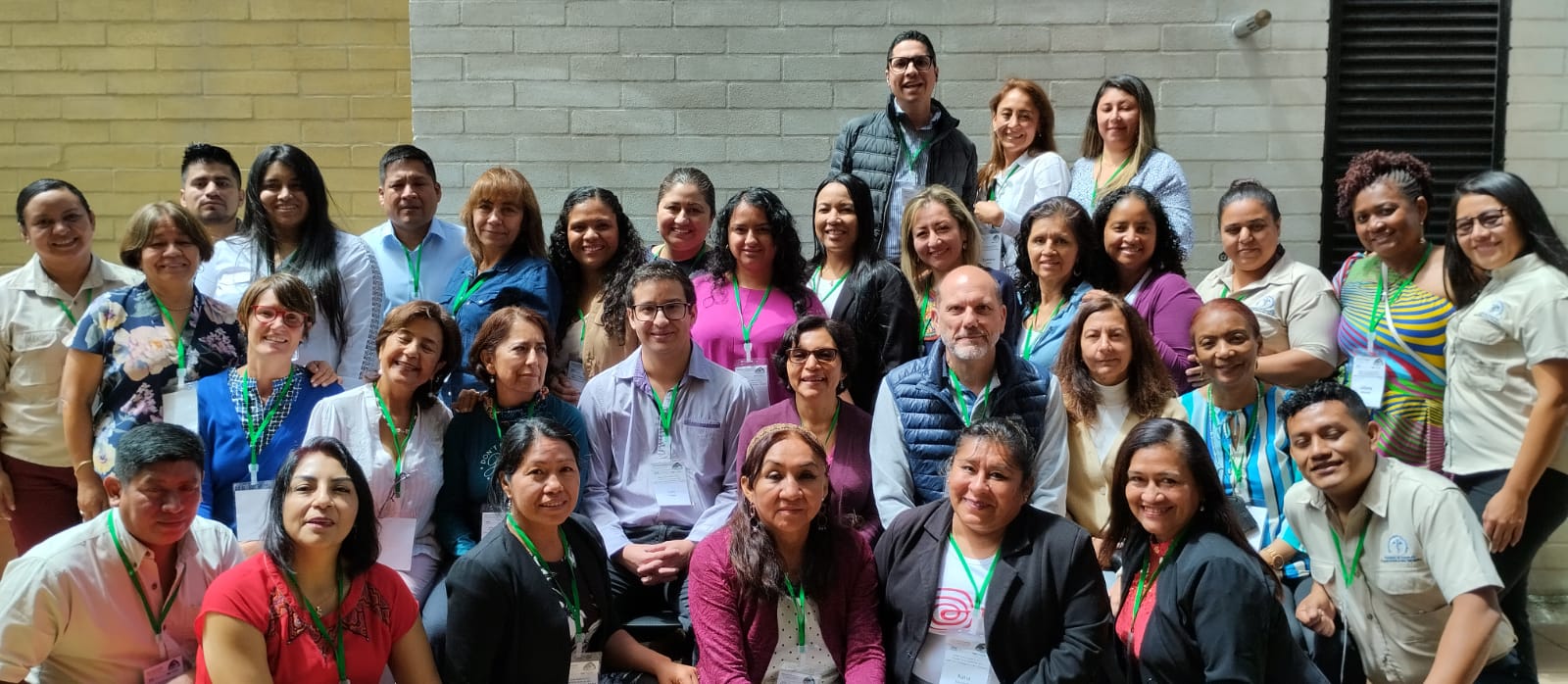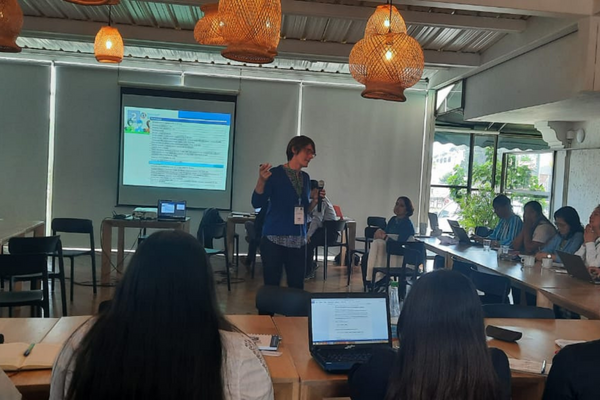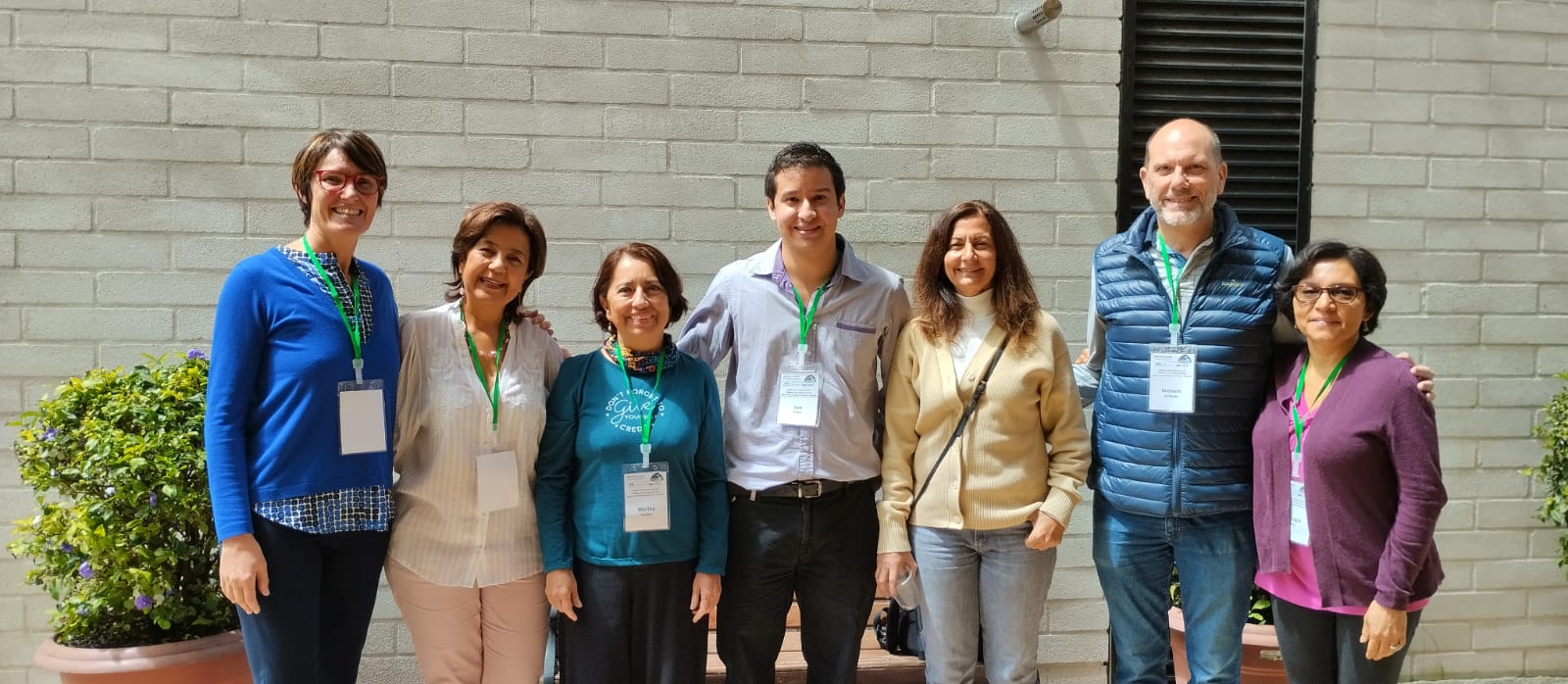A diploma course has just finished in Medellin, Columbia. Its aim was to allow participants to draw up suggestions for health promotion projects in their home countries. The main issue was a major autonomy for women, families and communities in Latin America and the Caribbean, in order to improve mothers’ and babies’ health.

Trainers and participants in the training
Strategic tools
This training course, offered to Latin American states by the CLAP/WR (Latin American Center for Perinatology / Women’s Health and Reproductive Health) of the PAHO (Panamerican Health Organization), and implemented in collaboration with the WHO (World Health Organisation), The Nacer Centre at the Faculty of Medicine at Antioquia University (Columbia) and Enfants du Monde (Swizterland), aims at training the participants to the use of strategic tools for the promotion of health, to reduce mother and baby mortality.
Its purpose is to promote and support the implementation of regional programmes to improve mothers’ and babies’ health.
The syllabus rests on national and regional policies regarding mothers’ and babies’ health and revolves around themes such as communitarian participation, fund raising, operational reflection, technical support needs, quality improvement, monitoring support.

A months-long certification
The training took place from April to October 2022 and was attended by three teams of executives from the Ministries of Health in Columbia, Guatemala and Peru, as well as PAHO (Panamerican Health Organization) representatives from these countries.
The learning process, the syllabus and the contents were structured in such a way as to lead to a health promotion project developed by each national group for its own country.
The last module ran in the week of 10 October around a face-to-face workshop held in Medellin, Columbia, and was the opportunity to finalise and reinforce the project suggestions and clarify the needs for support.
The trainers included representatives of the CLAP (Latin American Center for Perinatology / Women’s Health and Reproductive Health), of the WHO (World Health Organisation), of Antioquia University (Columbia) and of Enfants du Monde (Switzerland).

Trainers: Cecilia Capello - Enfants du Monde / Silvia Elena Uribe - University of Antioquia / Martha Lucia Escobar - University of Antioquia / Luís Eduardo - University of Antioquia / Anayda Portela - WHO / Bremen De Mucio - CLAP/PAHO
Trained to implement health promotion projects
At the end of this training, the participants are able to determine which measures should be taken in their country in order to ensure the implementation of health promotion projects and identify the necessary technical assistance. They will have figured out which strategies can institutionalise these projects in their health system, assuring a part of the financing and the integration of these projects in the state’s health plans and policies.
Contacts amongst alumni are favoured, thus enabling the synergies to last beyond the programme itself. This should also lead to future students forming a team of resource people in a specific area of the country, where they will be able to support the health promotion actions carried out there.
For this first training programme, the diplomas were handed over by Antioquia University (Columbia) and Enfants du Monde at a ceremony that took place during the October workshop.
A qualitative assessment of the training course will be useful to make it evolve positively and perpetuate.

New graduates in the implementation of health promotion projects
Indeed, more than 40% of the Guatemalan population belong to one of the Mayas’ ethnic groups. This project is funded by the Swiss Agency for Development and Cooperation.